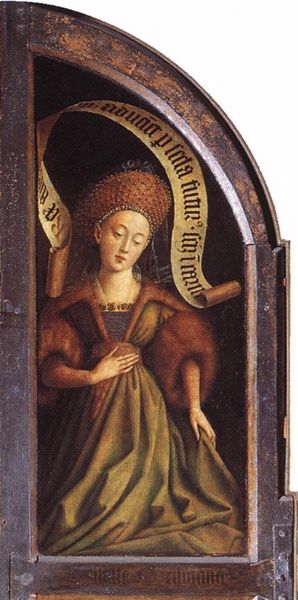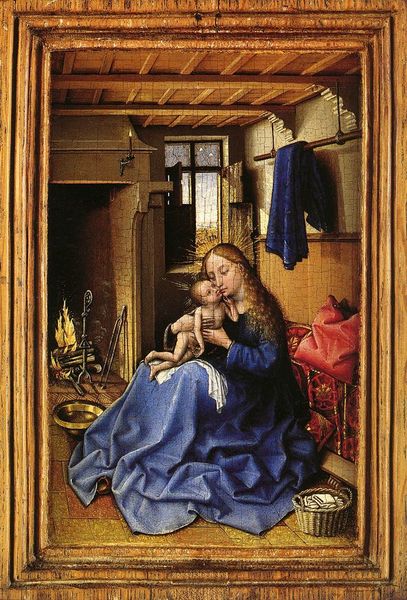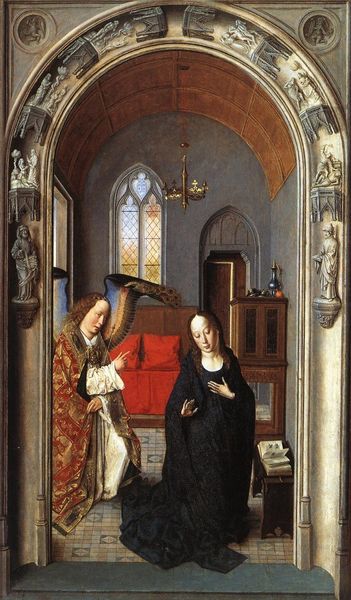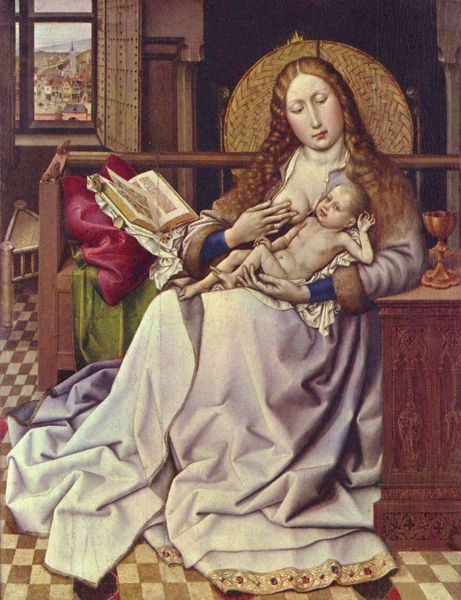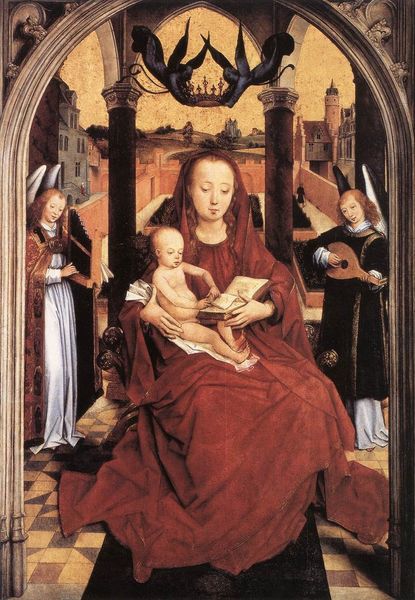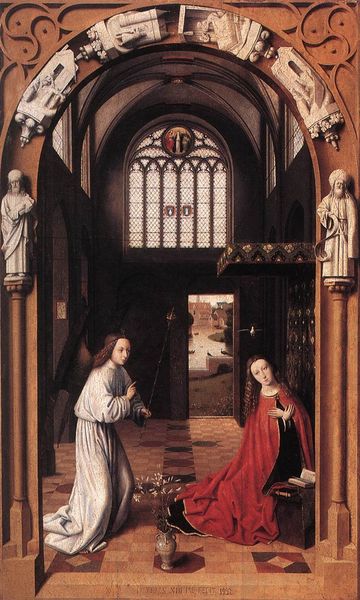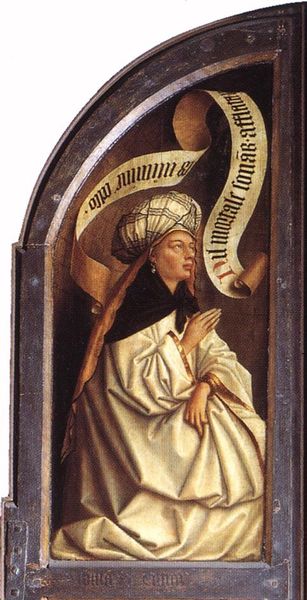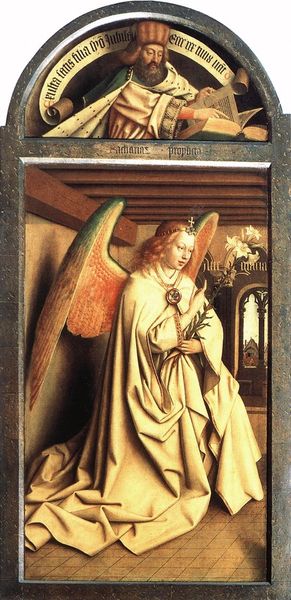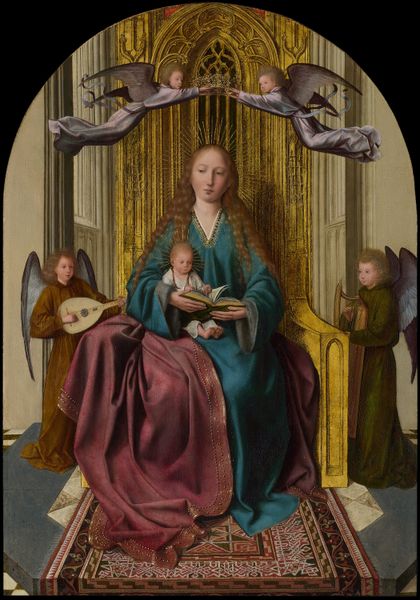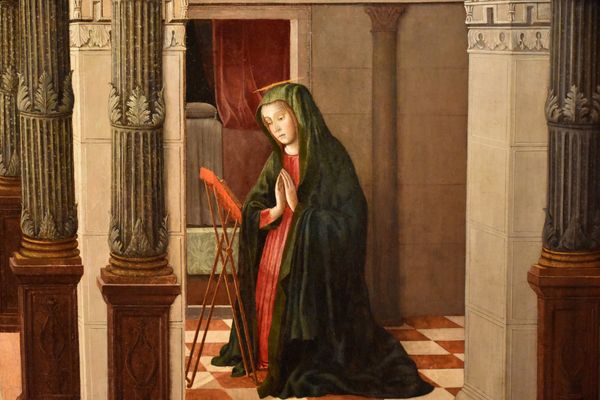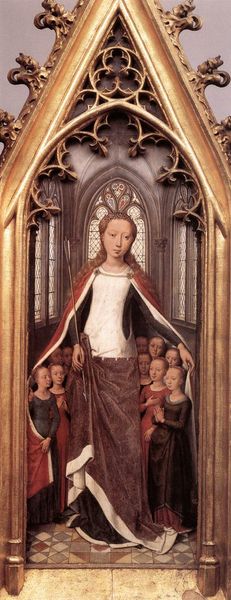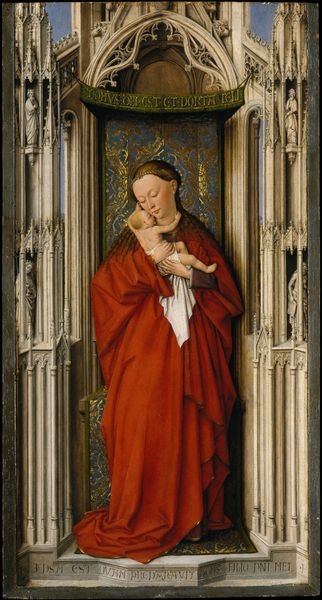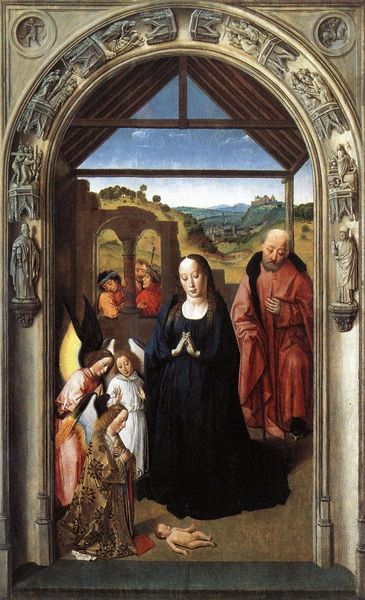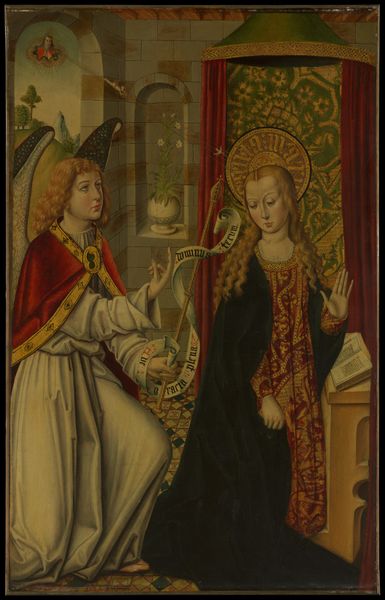
Virgin Annunciate, from the exterior of the right panel of the Ghent Altarpiece 1432
0:00
0:00
janvaneyck
St. Bavo Cathedral, Ghent, Belgium
painting, oil-paint
#
portrait
#
painting
#
oil-paint
#
sculpture
#
figuration
#
christianity
#
history-painting
#
northern-renaissance
#
early-renaissance
#
virgin-mary
Dimensions: 165 x 73 cm
Copyright: Public domain
This is the ‘Virgin Annunciate,’ painted by Jan van Eyck around 1432, part of the Ghent Altarpiece. It’s made with oil paint, a relatively new medium at the time, which allowed for a greater level of realism and detail. Look closely, and you’ll see how Van Eyck uses the qualities of oil paint to create a stunningly lifelike depiction of fabric. The Virgin’s robe isn't just a flat expanse of color; it has weight, texture, and a remarkable sense of volume. Notice how the light plays across the folds and creases. This was achieved through a meticulous process of layering thin glazes of paint, each one subtly modifying the color and tone of the layers beneath. The technique demands immense patience and skill, reflecting a deep understanding of the material properties of both paint and the textile it represents. In that sense, Van Eyck wasn’t just painting an image, he was also demonstrating his mastery of craft, elevating the status of the artist as a skilled maker. Ultimately, it’s this command of materials and processes that gives the work its enduring power.
Comments
No comments
Be the first to comment and join the conversation on the ultimate creative platform.
